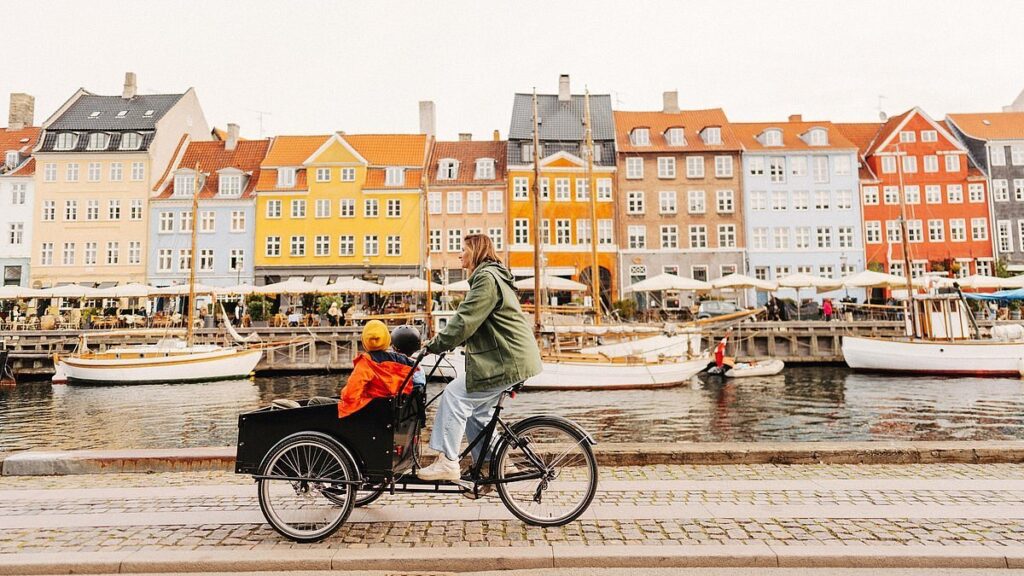Tourists in Copenhagen, Denmark, who participate in sustainable activities such as waste collection or using public transportation, may be rewarded with free meals, cultural experiences, and tours.
The project, called CopenPay, aims to “transform sustainable actions into rewards for cultural experiences,” according to Visit Copenhagen, also known as Wonderful Copenhagen, the city’s tourism authority. In a statement, the organization highlighted the importance of encouraging environmentally responsible behavior among tourists.

Through CopenPay, visitors can earn points by engaging in sustainable activities. These points can be redeemed for a variety of rewards, including free meals at local restaurants, tickets to museums and cultural events, and guided city tours. The program not only seeks to enhance tourists’ experiences but also to promote eco-friendly practices and contribute to Copenhagen’s sustainability goals.
Moreover, the CopenPay initiative is part of Copenhagen’s ongoing efforts to become a greener, more sustainable city. Already renowned for its advanced environmental policies and green infrastructure, the city seeks to involve visitors more actively in its environmental preservation mission.
Wonderful Copenhagen emphasizes that tourists’ participation is crucial for the program’s success. By actively engaging in sustainable practices, visitors not only enjoy immediate benefits but also contribute to a lasting positive impact on the environment and the local community.
This initiative serves as an example of how cities can encourage sustainable tourism by offering tangible rewards for eco-friendly behavior. With CopenPay, Copenhagen positions itself at the forefront of responsible tourism practices, paving the way for a more sustainable future for everyone.
For instance, visitors who bring plastic waste to the National Gallery of Denmark can gain access to a special workshop. During the session, they can transform the waste into a unique piece of art. Those who choose to cycle or use public transportation to reach the city’s heating plant at CopenHill can enjoy a unique experience: skiing on an artificial slope located on the building’s rooftop.
“CopenPay rewards actions such as cycling, participating in cleanup efforts, or volunteering on urban farms with access to a variety of enriching experiences and wonders in Copenhagen. This includes free guided museum tours, complimentary kayak rentals, and even a free vegetarian lunch made with local produce,” stated Wonderful Copenhagen.
The Danish capital is known among visitors for its stunning architecture, high-quality cuisine, and a safe, clean, and green environment. These characteristics make Copenhagen an extremely attractive destination for tourists worldwide, who now have the opportunity to explore the city in a more sustainable and rewarding way.
Copenhagen is an excellent place for cycling, boasting 382 kilometers of bike lanes, with 62% of residents using bicycles as their primary mode of transport, according to the city’s tourism board.
“With CopenPay, we encourage people to enjoy more of what Copenhagen has to offer while reducing pollution on our planet,” said Mikkel Aarø Hansen, CEO of Wonderful Copenhagen, in a statement. “The goal is to create meaningful and memorable experiences that are enjoyable and environmentally responsible.”
Rewards can be granted to visitors who, for instance, present a public transport ticket, but the system primarily relies on trust.
An online map is available, showing over 20 locations participating in the project. If successful, the initiative may be extended year-round.
Hansen emphasized the importance of each visitor becoming an agent of change by promoting sustainable practices during their travels. He highlighted that initiatives like CopenPay not only benefit the environment but also enrich tourists’ experiences, allowing for a deeper, more responsible connection with their destination. Through this program, Copenhagen hopes to inspire other cities worldwide to adopt similar approaches, creating a global movement toward more sustainable and mindful tourism.
He explained that the implementation of CopenPay is a direct response to the growing awareness of the need for more eco-friendly and responsible tourism practices. The program encourages tourists to actively participate in activities that contribute to the city’s sustainability, such as waste collection, public transportation use, and involvement in community projects. These actions are rewarded with cultural and recreational experiences, demonstrating that travelers can enjoy enriching trips while caring for the planet.
Additionally, Hansen mentioned that the success of CopenPay could serve as a model for other similar initiatives worldwide. He believes that by showcasing the tangible benefits of sustainable practices, more cities will be motivated to adopt programs that encourage responsible tourism. “We want Copenhagen to be an example of how tourism can be a positive force for the environment and local communities. By changing how we move, what we consume, and how we interact with locals, we can turn tourism into a powerful tool for sustainable change,” Hansen said.
CopenPay also aims to strengthen the bond between tourists and local culture, promoting a deeper appreciation for Copenhagen’s traditions and way of life. Through workshops, guided tours, and gastronomic experiences, visitors have the opportunity to engage directly with the community, learning about and contributing to the city’s cultural and environmental preservation. Hansen believes this kind of engagement creates lasting memories and a sense of belonging, making tourists feel like an integral part of the city.
The implementation of CopenPay comes at a critical time, as the tourism industry faces significant challenges due to environmental concerns. Hansen expressed optimism that this program could mark the beginning of a new era for sustainable tourism. “We are committed to transforming Copenhagen into a leading destination for eco-friendly practices and want our visitors to be part of this journey. Together, we can make a difference and ensure that future generations continue to enjoy the beauty and cultural richness of our city,” Hansen concluded.
With CopenPay, Copenhagen not only reaffirms its commitment to sustainability but also invites the world to participate in a positive and necessary change, proving that responsible tourism is not only possible but also rewarding for everyone involved.

